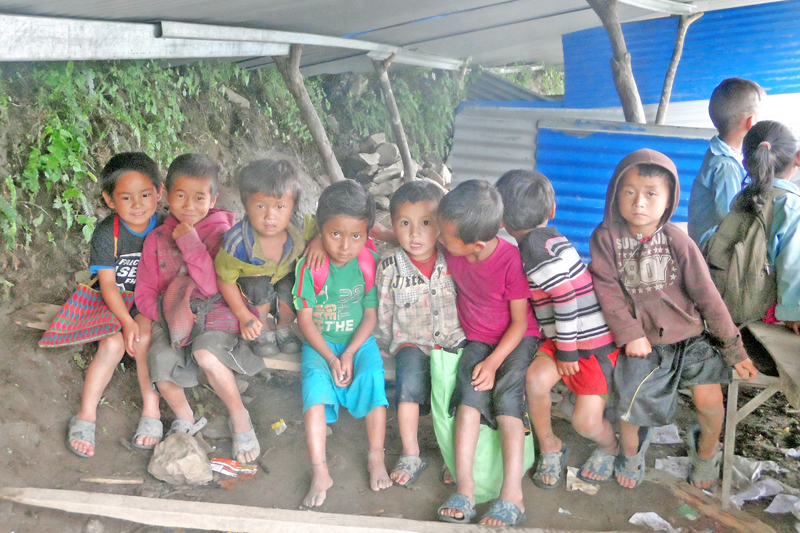One million kids still out of school: Report
Kathmandu, October 6
Various data have shown that almost one million Nepali children still remain out of school stated a report titled ‘All Children in School’ launched today by the Ministry of Education and United Nations Children’s Fund.
The report was prepared using all available authentic administrative data and findings of household surveys conducted between 2011 and 2014 in Nepal. Thus it was possible to disaggregate the number and reveal various dimensions of inequality and barriers that cause non-enrollment and drop-out of children.
As per the Census 2011, 14.3 per cent of children aged between 5 and 12 years are out of school which is 0.77 million of the total population in this age group. Likewise, school is out of reach for many children from the most disadvantaged families, despite the great strides Nepal has taken in improving education system over the past decades.
The report states that 35.2 per cent of the out-of-school children reside in the districts of central Tarai, mainly in Rautahat, Sarlahi, Mahottari, Dhanusha and Bara. The majority of the remaining 22 per cent are in eastern Tarai.
It further states that children who are at risk of dropping out of school include those who start schooling late, new entrants in Grade I without pre-school experience, children who repeat grades, children underperforming in Grade VIII, children involved in child labour, seasonal migration and marriage, children with disability, children speaking ethnic-minority language and children residing in the earthquake-affected districts.
Similarly, the key barriers to education for children included poverty, social exclusion linked to caste/ethnicity, disability, migration, child labour, child marriage, trafficking, harmful social norms and gender biases, poor school infrastructure and staffing, language barriers, natural disasters and civil strife, and financial bottlenecks.
Speaking at the report launching ceremony, Minister for Education Dhaniram Poudel said that the government was tirelessly working to ensure quality education for all through national legislation, policies and programmes.
He said, “Our net enrollment rate now has reached 96 per cent, and the recent amendment to the Education Act has made education free and compulsory up to Grade VIII.”
He further said the report will prove extremely useful for policy makers, planners and implementers to understand who are the most vulnerable groups of children in terms of access to and retention in schools for basic education as well as to forge strong partnership among the concerned to reach out to the unreached children.
The report has analysed the issue of out-of-school children by considering Five Dimensions of Exclusion Model.
The report “All Children in School” is a part of the Global Initiative on Out-of-School Children launched by UNICEF and UNESCO Institute for Statistics in 2010.
The initiative seeks to identify barriers that prevent children from participating in a full course of basic education; show gaps in data and research; provide evidence to make informed policy decisions to address educational deprivation; and establish a basis for innovation and follow-up actions to ensure quality education for all children.






